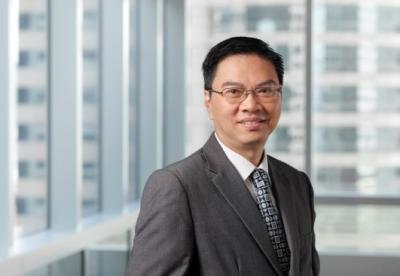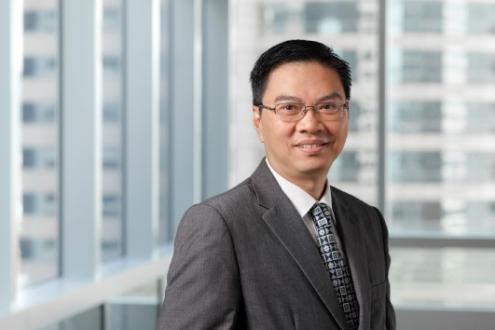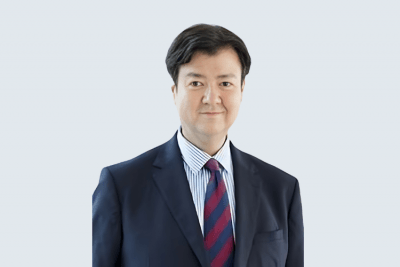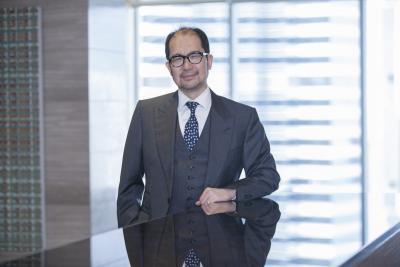Wealth Solutions & Wealth Planning
Pictet Wealth Management’s Head of Wealth Planning North Asia Surveys the Need for A Proactive Approach in an Increasingly Complex World

On Wai Lau of Pictet
Jan 16, 2023
On Wai Lau is Head of Wealth Planning covering North Asia markets for Pictet Wealth Management, specialising in advising Greater China HNW families on their wealth succession, cross border investments, immigration planning, risk management and family governance planning, working with them to help set up selected fiduciary and legal structures, including family offices, private trust companies and other vehicles. Hubbis met with him recently to learn more about his role, his clients, and the missions ahead.
Hubbis: Briefly, what do you do at Pictet and is Hong Kong the right centre from which to project your expertise these days?
Lau: My career in wealth management spans more than three decades and my current role involves me helping Pictet bankers with the wealth planning and structuring aspects around their clients.
Hong Kong is perhaps not an easy jurisdiction to promote to some foreign clients, for example from the US these days due to intensifying competition between the US and China. However, having said that, my discussions with clients focus on their missions and goals, and there are still huge opportunities and connectivity, with China particularly, and with the expansion of initiatives related to the Greater Bay Area and the promotion of family offices by the Hong Kong government.
Hong Kong has some advantages, such as more flexibility for clients to make use of offshore funds to be managed by the family office, which may not necessarily be a Hong Kong incorporated company, and also greater connectivity for families to focus on business opportunities in China.
From my perspective, Hong Kong is still the best place for these types of structures. Moreover, Hong Kong is historically a major global capital markets centre, the Hong Kong government is working together with China to promote the internationalisation of the Renminbi and the green bond market, and there are many established areas of expertise here.
While some clients may be cautious about the ongoing US-China tensions, we place the emphasis on Hong Kong’s key strengths and the benefits of using Hong Kong as a jurisdiction for their own wealth planning.
I should add another advantage is the reciprocal jurisdictional recognition of court decisions of commercial cases from Hong Kong, in other words a bilateral recognition agreement between Hong Kong and China. That is a significant advantage for many overseas clients who are conducting business or investments relating to China.
Hubbis: In generalised terms, what are the key trends in terms of your clients’ wealth and legacy structuring?
Lau:
With the markets as uncertain as they are, with increasing geopolitical conflicts such as the situation in Ukraine, clients are more cautious these days, looking for structures to preserve and protect their wealth.
Additionally, there are numerous demands around regulation, compliance and tax, and transparency of actions and reporting are increasingly vital.
Today, clients need robust structures for risk management and a variety of solutions, not only the trust as people used to focus on, but nowadays life insurance solutions, including Universal Life, Private Placement Life Insurance and others, for the many advantages they bring around portability, wealth protection, reporting and also legacy.
We also work closely with clients on their relocation planning, as part of risk diversification for individuals and families. This is not only related to structuring, taxation, or compliance, but also to avoid potential disruption of business due to short term lockdowns and travel bans that we have seen in recent years, as Bill Gates has been highlighting the increasing risk of epidemic. Accordingly, we advise clients to consider carefully about the location and jurisdiction diversification, not just for tax reasons, but also for risk control.
Hubbis: Working as you do with a variety of bankers, lawyers, tax advisors, immigration consultants, insurance providers and others, how do you see your role and how do you curate the solutions for the clients?
Lau: You are right, my role is in a way as a coordinator as well as advisor for the clients, to help them arrive at a more holistic plan, and then expedite the right solutions working with the right experts.
Clearly, the first steps are to properly understand the clients, their families, their wealth, and their objectives. We see that some are more focused on risk mitigation, while others might be more intent on growing their wealth. Some of them may have philanthropy initiatives in mind.
Once we understand the needs of these clients, we can begin to propose the right possible combination of solutions. These could range, for example, from some simple will drafting, working through tax issues and hurdles, and bringing in tax advisors, considering relocation planning, setting up trusts or other vehicles and so forth. We will always work with external experts to deliver optimal advice and solutions to the clients.
Hubbis: You said you need to understand your clients, but are they willing to provide you with the right and complete information about themselves?
Lau: My role is unique as many of these HNW and UHNW clients will, understandably, only reveal information to those with whom they have built a trusted relationship. A key area for us is not only the client relationship but also our knowledge of who can be trusted and who the genuine experts are in each of the other key areas, for example lawyers, accountants, insurance experts, immigration specialists and so forth. From my experience, many high-net-worth clients may hesitate to share all their info without knowing who to turn to for the best advice, but we can help guide them through these issues and work with them throughout the process to ensure the right outcomes.
Accordingly, you can say that we are coordinating quality control for our clients, helping them work with the best and most trusted external partners, and also those that we believe will be the most reliable and stable.
We are the consistent centre to help organise and advise on all these matters, helping bring about the holistic approach clients need to achieve their wealth and legacy planning goals.
Moreover, we are in this market constantly, and can also alert clients of some of the many changes taking place all the time around structures, regulations, taxation, and other key issues around the world. This is the kind of added value that we also provide our bankers and our clients.
Structures are not the same as they used to be, as tax reporting and compliance requirements are far more complex, including around double tax treaties, regulations are more intense, and authorities will demand even higher level of proof around economic substance, tax residence where you are really living and so forth. Moreover, there are regulations that are increasingly onerous on the advisors themselves, so for example in Europe any advisor suggesting their EU clients to enter any kind of cross border structure, which ends up with some kind of tax impact on the transaction, they themselves and their clients may have to report on this under DAC6 directives
Finally, there is greater technology involved, more digital reporting, so that advisors and clients need to be aware that they do not sidestep, deliberately or mistakenly, different reporting requirements imposed by the US or by the EU, or by the OECD’s Pillar One and Pillar Two rules, which are increasingly rigorous and complicated.
Hubbis: Given all these complexities and the concomitant need for truly professional and robust wealth and estate planning, what is your final word to potential clients?
Lau: Clients need to devise professional and wide-ranging structuring solutions, but they also need to retain flexibility, as things are changing so rapidly. They need to be proactive, and they need to think about all the key areas and all types of assets, whatever they might be and wherever they are located or stored. For example, although this is not an area Pictet promotes, many HNW clients now hold crypto assets, and they also need to be included in properly devised and comprehensive structuring. Clients need to look far ahead, beyond the protection of their assets and to the succession issues for their family and other beneficiaries.

Head of Wealth Planning North Asia at Pictet

More from On Wai Lau, Pictet
Latest Articles
Wealth Solutions & Wealth Planning
Investment Migration, Residency & Citizenship – Key Trends Relevant to HNW and UHNW Private Clients






